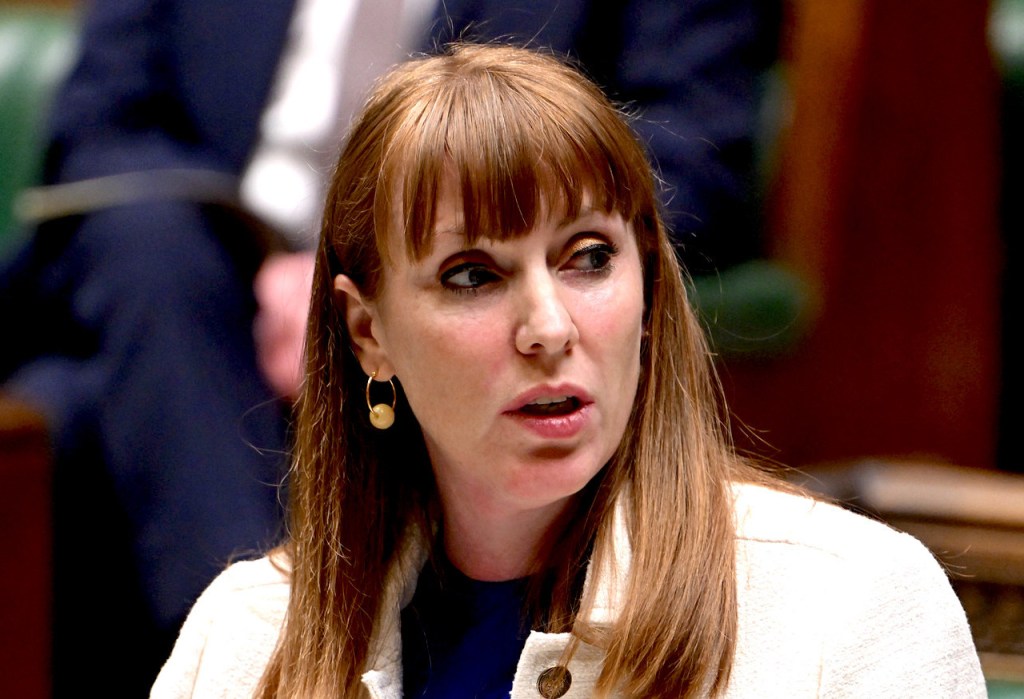What do the following things have in common? The ‘Safety Advisory Group’ of Birmingham City Council banning the sale of away tickets to fans of an Israeli football team. The refusal of police to arrest ‘pro-Palestinian’ marchers calling to ‘globalise the intifada’ right in front of them. The reluctance of politicians to implement the law on separation of the sexes, made clear months ago by the Supreme Court ruling. The government’s unwillingness to protect parliament from Chinese spying. I think the answer is simple: plain, old-fashioned fear.
Yes, we often hear accusations that the institutions are squeamish about difficult topics, that individuals are guilty of moral cowardice. We toss this criticism about airily, as if all it would take to sort these things out is for our leaders to show some spine. But I reckon it goes deeper than that. This is genuine, personal fear with a capital F. Fear makes sense of it all. They’re afraid. And here’s the big thing: that fear is justified.
There are three levels of modern political fear. First, and this is serious enough, there is the fear of losing one’s social status and career, of ‘cancellation’. Taking a position against the consensus that dominates the progressive establishment still marks you out.
Then there is the fear of facing the truth, because it is overwhelming, and it would also mean accepting that you have been not only wrong, but have been proved disastrously wrong. (And even worse, that the people you despise were correct.) This applies across the board, to the Supreme Court foot-draggers, China avoiders and mass immigration enthusiasts alike.
And third, and this is the big unmentionable: actual physical fear for your life and the lives of others.
We can see this in the failure to find anybody willing to head up the rape gang inquiry. Survivors on the preparatory panel were told yesterday that social worker Annie Hudson, one of only two names left in the frame, no longer wanted to be considered for the post. Can you blame her? Her name would be associated forever with a massive truth bomb that would set a lion among the pigeons. The progressive establishment would despise her, and she’d be painting a target on her own back with what we still timidly refer to as ‘our communities’. Hilary Cass and Tony Sewell have suffered harassment – and, in Sewell’s case, professional censure – merely for leading inquiries on much colder, though still highly controversial, topics.
The fear of violence is the enormous elephant in the room of Britain. When you see, for example, Jess Phillips harassed at her election count last year by supporters of the local ‘Gaza independent’, you begin to see why she behaves in the peculiar way that she does. She is terrified.
The government’s own working party to define ‘Islamophobia’ is, we hear, in trouble. A phobia, after all, is an irrational fear. It’s taboo to admit that we’re actually frightened, to the point of inertia, by Islamism. None of us has ever had to square up to anything like this. We’d really rather not. So we look for crumbs of solace, chuntering on as Starmer does about diversity being our strength, our marvellous British values of tolerance, etc.
The horrors of the Hamas attack on 7 October 2023 in Israel are so far beyond our modern western understanding of the world that we simply cannot comprehend them. Last year the Henry Jackson Society polled British Muslims and found that 39 per cent disputed the truth of the events, and that 46 per cent sympathised with Hamas. Only 28 per cent said it would be undesirable to outlaw homosexuality.
Demographic forecasters say the UK’s Muslim population could treble between 2017 and 2050. How is that going to turn out, when so many Muslims hold these kinds of views? Is being afraid of this really irrational? A ‘phobia’? When the police and other state agencies refuse to act, placing so-called ‘community cohesion’ above every other consideration, it is because they know they simply could not cope with the reaction, and it would also be a bad look, exposing the very uncomfortable truth.
Over the last 30 years there have been historic errors made
It turns out the Met can ban protests, in the right circumstances. A recent statement tells us: ‘The prospect of serious disorder has prompted us to intervene to prevent a protest organised by Ukip’ – they’re still going, apparently – ‘from taking place in Tower Hamlets on Saturday. It was calling for “mass deportations” and had caused significant community concerns.’ But endless public calls over the last two years to ‘globalise the intifada’, and other blatantly anti-Semitic rallying, have been ignored. Why could that be? And this ‘serious disorder’ – from what or whom would it originate? Carrots? Presbyterians? Showaddywaddy?
In this context, Starmer’s pathetic wheedling about a ‘patriotic renewal’ of a united Britain begins to look more like the bargaining of the victim of a protection racket, for which the only defence is compliance.
Similarly, the threat of violence from gender activists has our establishment quaking in their boots. Green MP Sian Berry reacted to the vandalism and intimidation of a feminist conference by trans activists in her Brighton constituency with a tweet that blamed the women for ‘inflaming division’. The collapse of the Chinese spy trial was also very obviously motivated by fear of a different kind.
The first step towards defeating a problem is correctly identifying it. Over the last 30 years there have been historic errors made, on a horrifying scale, on uncontrolled immigration, on gender, and on China. It is very big, very scary stuff. I wish we didn’t have to face it, but we must. As it stands, we are terrified, and scared even to say that we are.









Comments